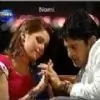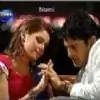Jayaḥ - Iti-H'Āsaḥ
Triumph - Thus It Actually Was
Long ago, there was a story of political intrigue and battle. We don't know what the story was exactly. Maybe its events actually took place thousands of years ago, somewhere near the lands of Sindhu and Sauvīra that now lie in Pakistan, and maybe the ballad travelled eastward from bard to bard until a historical Kuntī living in Hāstinapura quoted one dialogue from it to inspire her sons to fight. The story might also have been entirely fiction, earlier or later than Mahābhārata's core narrative. It may have been a popular story for a few centuries, but any efforts to preserve it like Mahābhārata did not succeed. Today, only the clues in that quoted dialogue (Udyogaparvan chapters 131-134) allow me to guess what story to tell you.
Most of the dialogue is spoken by Vidurā, whom Kuntī describes thus:
yaśasvinī manyumatī kule jātā vibhāvarī
kṣatra-dharma-ratā dhanyā Vidurā dīrgha-darśinī
viśrutā rāja-saṃsatsu śruta-vākyā bahuśrutā
Vidurā nāma vai satyā
Glorious, irascible, nobly born, brilliant, dedicated to a kṣatriya's morality, blessed Vidurā was far-sighted. Renowned, with speeches listened to in royal assemblies, much educated, Vidurā was her name indeed, and she was honest.
In which country Vidurā was nobly born and much educated, we do not know. Her speech includes a phrase used also by Kuntī:
ahaṃ mahākule jātā hradād dhradam iv'āgatā
I was born in a grand noble family, and came here as if from pond to pond.
So, our story begins with a grand noble family, perhaps royalty. Like a cool pond on a summer day, it was sheltered from the perils of ordinary life. A girl child was born into this nobility, and she was named Vidurā. She was given an education, possibly before marriage. One of the authorities that she could quote was Śambara:
n'ātaḥ pāpīyasīṃ kāṃ cid avasthāṃ Śambaro'bravīt
yatra n'aiv'ādya na prātar bhojanaṃ pratidṛśyate
pati-putra-vadhād etat paramaṃ duḥkham abravīt
dāridryam iti yat proktaṃ paryāya-maraṇaṃ hi tat
Śambara said that there is no uglier situation than this: where neither now nor tomorrow is a meal foreseeable. He said that not the slaying of husband or son but this is the ultimate grief; what is termed poverty is constant dying, really.
Vidurā understood the dehumanizing nature of poverty. Determined that she would never live that way, she dedicated herself to kṣatra-dharma, the governing class's way of life, asserting her privilege of nobility:
vayam āśrayaṇīyāḥ sma n'āśritāraḥ parasya ca
sā'nyān āśritya jīvantī parityakṣyāmi jīvitam
We are givers of refuge to others, not seekers of refuge with others. If I have to live by resorting to others, I will give up my life!
The legend of the Ājāneya horse, who was mortally wounded but carried on with the battle, inspired Vidurā. She knew that the kṣatriya who provides safety and livelihood to others must be prepared to fight enemies:
udyamya dhuram utkarṣed Ājāneya-kṛtaṃ smaran
Making an effort, one should drag the yoke upward, remembering what Ājāneya did!
Vidurā was married to a royal who shared her belief that as kṣatriyas they had an obligation to provide for the needs of brāhmaṇas:
n'eti ced brāhmaṇān brūyāṃ dīryate hṛdayaṃ mama
na hy ahaṃ na ca me bhartā n'eti brāhmaṇam uktavān
If I am to say no to brāhmaṇas, my heart breaks. I never, nor did my husband say no to a brāhmaṇa.
Vidurā's husband may have exemplified her ideal of a generous king, which she described to her son Saṃjaya in these words:
anu tvāṃ tāta jīvantu brāhmaṇāḥ suhṛdas tathā
Parjanyam iva bhūtāni devā iva Śatakratum
yam ājīvanti puruṣaṃ sarva-bhūtāni Saṃjaya
pakvaṃ drumam iv'āsādya tasya jīvitam arthavat
yasya śūrasya vikrāntair edhante bāndhavāḥ sukham
tridaśā iva Śakrasya sādhu tasy'eha jīvitam
After you, my boy, may brāhmaṇas and well-wishers subsist, like beings after the Rain-God, like celestials after him of a Hundred Ceremonies. The person off whom all beings subsist, Saṃjaya, as if coming upon a tree of ripe fruit, his living is meaningful. The brave man whose exploits fuel his relatives' comfort, as do those of Śakra for the Thrice Ten, his living is applauded here.
Which kingdom Vidurā's husband ruled and where she made speeches in royal assemblies, we cannot say for certain. The dialogue names only two countries, of which Sindhu is the enemy and Sauvīra is favoured in contrast. Since Vidurā used the words gehe janī rājñaḥ - "taking birth in a royal's house" - to remind Saṃjaya of his pedigree, we can infer that her husband was a royal before her son's birth.
Vidurā was aware that previous generations of the family hadn't always lived comfortably, and yet they had never been anyone's followers:
samṛddhir asamṛddhir vā pūrveṣāṃ mama Saṃjaya
evaṃ vidvān yuddha-manā bhava mā pratyupāhara
My ancestors had prosperity or lack of prosperity, Saṃjaya. Knowing this, make up your mind to fight and don't retreat.
n'āsmiñ jātu kule jāto gacched yo'nyasya pṛṣṭhataḥ
Never in this family was born one who would go behind another.
Vidurā was respected by her husband and proud of the luxuries she enjoyed:
īśvarī sarva-kalyāṇair bhartrā parama-pūjitā
mahā'rha-māly'ābharaṇāṃ sumṛṣṭ'āmbara-vāsasam
I was the mistress, enjoying all fineries, most honoured by my husband. Of great price were my garlands and ornaments; well-cleaned fabric were my garments ...
Vidurā gave birth only once; her son referred to himself as putram ekajam - your son, the only one born. She named her son Saṃjaya - Total Triumph, wishing that he would fulfil his name:
anvartha-nāmā bhava me putra mā vyartha-nāmakaḥ
samyag-dṛṣṭir mahāprājño bālaṃ tvāṃ brāhmaṇo'bravīt
ayaṃ prāpya mahat kṛcchraṃ punar vṛddhiṃ gamiṣyati
Exist according to your name, my son; don't be futilely named! A clear-sighted brāhmaṇa of great wisdom said of you as a child, "This one will fall into great peril and go on to flourish again."
Given Vidurā's devotion to brāhmaṇas, it's quite possible that one of them did prophesy that her son would overcome difficulty. On the other hand, Vidurā was shrewd enough to make up an encouraging prophecy just to inspire Saṃjaya to fulfil it. Saṃjaya's behaviour early in life made Vidurā proud of him:
yadi kṛtyaṃ na paśyāmi tav'ādy'eha yathā purā
ślāghanīyaṃ yaśasyaṃ ca kā śāntir hṛdayasya me
If I don't see your agenda, right now, right here, praiseworthy and generating glory as before, what peace can my heart find?
It was normal for a prince or king like Saṃjaya to have sexual relations with courtesans who attended the royal court. However, it seems that Saṃjaya's affairs with courtesans sent by the King of Sindhu (who held the title of Saindhava) led to his defeat in battle by that enemy. Vidurā's allusion to this is quite vague:
uṣya Sauvīra-kanyābhiḥ ślāghasv'ārthair yathā purā
mā ca Saindhava-kanyānām avasanno vaśaṃ gamaḥ
yuvā rūpeṇa saṃpanno vidyayā'bhijanena ca
yas tvādṛśo vikurvīta yaśasvī loka-viśrutaḥ
voḍhavye dhury anaḍuvan manye maraṇam eva tat
Dwelling with girls of Sauvīra, win praise with your projects as before, and don't dejectedly fall under the influence of girls of Saindhava. Youthful with good looks, educated and of noble lineage, if someone glorious and famous in the world like you misbehaves like a bullock when the yoke is to be pulled, I think it's quite your death.
This is the only time that the dialogue mentions Sauvīra, and we can speculate whether this kingdom may have belonged to Vidurā's husband - so that her advice to Saṃjaya was to have affairs only with loyal courtesans owned by himself, or Sauvīra belonged to Vidurā's father and she was encouraging her son to satisfy his urges with frequent diplomatic visits to a close ally, or Sauvīra was the native kingdom of Saṃjaya's wife and the girls of Sauvīra were her companions who kept her husband entertained. It's also possible that the Sauvīra kingdom was allied with Saṃjaya simply to defend its border with Sindhu, and thus Vidurā thought of the girls of Sauvīra to help Saṃjaya to forget the girls sent by Saindhava.
The word kanyā can refer to a princess even after marriage, but if three or more daughters of Saindhava had been wives of Saṃjaya, it seems improbable that Saṃjaya would have been at war with the King of Sindhu, or that Vidurā would have told Saṃjaya to stay aloof from his Saindhava wives in favour of three or more wives from Sauvīra, using the verb uṣya - dwelling - instead of pūjya - honouring - the verb she uses for her husband's attention to herself. An earlier part of the dialogue unambiguously tells us that Vidurā recognized only one wife of Saṃjaya:
yadā māṃ c'aiva bhāryāṃ ca draṣṭā'si bhṛśa-durbale
na tadā jīviten'ārtho bhavitā tava Saṃjaya
When you have seen me and your wife severely weakened, then there will be no purpose to your living, Saṃjaya!
For the plot of our story, we must imagine what intrigue of Saindhava's girls brought about his defeat of Saṃjaya. Did the girls distract Saṃjaya from his duty to govern his kingdom? Did they come between him and his allies, or cleverly persuade Saṃjaya to adopt bad strategies for war? Whatever they did, Vidurā blamed Saṃjaya for the defeated plight of his family:
udbhāvaya kulaṃ magnaṃ tvatkṛte svayam eva hi
Our family has plunged on account of you; reinvigorate it yourself only, really!
avṛtty'aiva vipatsyāmo vayaṃ rāṣṭrāt pravāsitāḥ
sarva-kāma-rasair hīnāḥ sthāna-bhraṣṭā akiṃcanāḥ
avarṇa-kāriṇaṃ satsu kula-vaṃśasya nāśanam
Kaliṃ putra-pravādena Saṃjaya tvām ajījanam
niramarṣaṃ nirutsāhaṃ nirvīryam ari-nandanam
mā sma sīmantinī kā cij janayet putram īdṛśam
Only without livelihood, we are in trouble, exiled from our nation, deprived of enjoyment of all desires, separated from our position, having nothing at all. You who embarrass us among the honest, ruining our family and dynasty, are Kali - Collapse - whom I birthed, calling you a son, Saṃjaya! Without resentment, without enthusiasm, without heroism, delighting enemies - sure, no one who parts her hair should bear such a son!
However it may have happened, Saṃjaya was defeated by the King of Sindhu and he lay down, depressed. Vidurā gave him a harsh scolding, urging him to fight even if he had to die in a blaze of glory:
na mayā tvaṃ na pitrā'si jātaḥ kv'ābhyāgato hy asi
nirmanyur upaśākhīyaḥ puruṣaḥ klība-sādhanaḥ
You're not born through me, nor through your father; where have you dropped in, really? No rage, grabbing branches, a man with a queer's equipment!
alātaṃ tindukasy'eva muhūrtam api vijvala
mā tuṣ'āgnir iv'ānarciḥ kāka-raṅkhā jijīviṣuḥ
muhūrtaṃ jvalitaṃ śreyo na tu dhūmāyitaṃ ciram
Like a firebrand of tinduka wood, blaze even for an hour! Don't be without a spark like a chaff-fire, clinging to life like a fleeing crow! Burning for an hour is better, and longtime smoking isn't!
mā dhūmāya jval'ātyantam ākramya jahi śātravān
jvala mūrdhany amitrāṇāṃ muhūrtam api vā kṣaṇam
Don't be smoky! Burn to the limit! Attack and kill the enemy's men! Burn on the heads of unfriends for an hour or even for a second!
śūrasy'orjita-sattvasya siṃha-vikrānta-gāminaḥ
diṣṭa-bhāvaṃ gatasy'āpi vighase modate prajā
Even when a brave man of energetic spirit, moving like a leaping lion, has passed his fated existence, the populace enjoys his leftovers.
sarve te śatravaḥ sahyā na cej jīvitum icchasi
atha ced īdṛśīṃ vṛttiṃ klībām abhyupapadyase
All of your enemies can be resisted if you don't wish to survive, and if you do, you'll grow accustomed to a queer's livelihood like this.
We have to imagine whether Vidurā was a widow and Saṃjaya whom she addresses as Rājan - Royal - was King at this time, or Vidurā's husband was still Mahārāja and Vidurā expected Saṃjaya to fight as Yuvarāja or even as a junior prince like Arjuna in Mahābhārata. Clearly, Vidurā still liked to dress well and enjoy herself, because Saṃjaya asked her twice:
kiṃ nu te mām apaśyantyāḥ pṛthivyā api sarvayā
kim ābharaṇa-kṛtyaṃ te kiṃ bhogair jīvitena vā
If you don't see me, what will you do even with the entire earth; what will you have to do with ornaments, what with enjoyments or with life?
To this, Vidurā replied:
sa samīkṣya-kram'opeto mukhyaḥ kālo'yam āgataḥ
asmiṃś ced āgate kāle kāryaṃ na pratipadyase
asaṃbhāvita-rūpas tvaṃ sunṛśaṃsaṃ kariṣyasi
taṃ tvām ayaśasā spṛṣṭaṃ na brūyāṃ yadi Saṃjaya
kharī-vātsalyam āhus tan niḥsāmarthyam ahetukam
Now this crucial time has come with courses of action to consider. When this time has come, if you do not return to your task, you will appear incompetent and do very wrong. If I didn't talk to you who are touched by inglory, Saṃjaya, they'd call it a jenny's motherly love, worthless and unmotivating.
Although Vidurā mostly talked Saṃjaya out of his depression, repeatedly shaming him for being passive like a woman or a klība - queer - and describing the qualities of a real man, she also made some concrete suggestions:
apy areḥ śyenavac chidraṃ paśyes tvaṃ viparikraman
vinadan vā'tha vā tūṣṇīṃ vyomni vā'pariśaṅkitaḥ
Now, like a hawk, you look for the enemy's vulnerability, circling around, either crying out or silently, unafraid as if in the sky.
santi vai Sindhu-rājasya saṃtuṣṭā bahavo janāḥ
daurbalyād āsate mūḍhā vyasan'augha-pratīkṣiṇaḥ
sahāy'opacayaṃ kṛtvā vyavasāyya tatas tataḥ
anuduṣyeyur apare paśyantas tava pauruṣam
taiḥ kṛtvā saha saṃghātaṃ giri-durg'ālayāṃś cara
kāle vyasanam ākāṅkṣan n'aiv'āyam ajar'āmaraḥ
There are many people contented with the King of Sindhu, who remain out of weakness, stupefied, awaiting heaps of calamity. When you have added to your allies and negotiated, in due course the others should disintegrate, watching your endeavour. Making treaties with them, roam the inaccessible landscape of the hills, anticipating eventual calamity because he's really not free of aging and death.
Saṃjaya tried to tell Vidurā to be a sympathetic mother, even jaḍamūkavat - like an unintelligent or mute person. Vidurā scoffed:
codyaṃ māṃ codayasy etad bhṛśaṃ vai codayāmi te
It's fit for talk that you talk thus to me, so only harshly I'll talk to you.
Saṃjaya promised to follow Vidurā's instructions if she could figure out a solution to this problem:
akośasy'āsahāyasya kutaḥ svid vijayo mama
Without treasury, without allies, how is victory possible for me?
Vidurā advised Saṃjaya to apply bhaviṣyat'īty eva manaḥ - only a "will happen" attitude to profitable activities, attended by brāhmaṇas and masters, to ally himself with whoever was disgruntled to disunite the enemy, to show indomitable daring so that the enemy would negotiate a truce, giving him an opportunity to enrich himself. She also promised to reveal to Saṃjaya their large accumulated treasury that only she knew.
At the conclusion of Vidurā's speech, we are told only that Saṃjaya did exactly what she instructed, and that listening to this story leads a king to victory over the land and crushing of his enemies, while (scientifically impossible, of course) a pregnant woman listening to this story often will surely give birth to a male child, an all-round achiever hero. Was Saṃjaya victorious, or did he tragically die in battle? Our story must end with that ambiguity.
Edited by BrhannadaArmour - 2 years ago






























